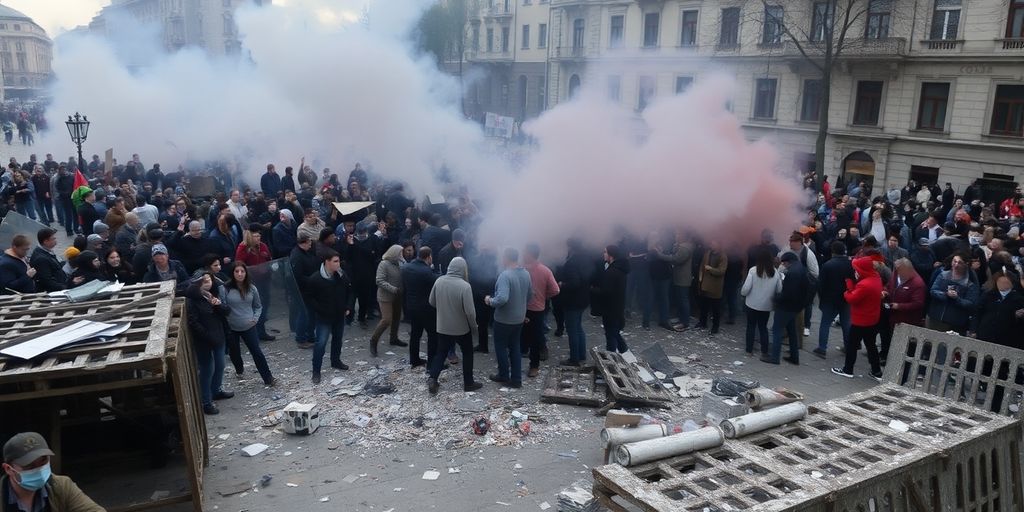Bulgaria is currently facing a significant political crisis marked by widespread protests and acts of vandalism, particularly from the pro-Russian Vazrazhdane party. Demonstrators are expressing their frustrations over rising food prices, government corruption, and the potential adoption of the euro, leading to violent confrontations and calls for reform.
Key Takeaways
- Protests in Bulgaria are fueled by rising food prices and government corruption.
- The pro-Russian Vazrazhdane party has vandalized EU offices in Sofia.
- Citizens are demanding accountability and transparency from their leaders.
- A boycott of major supermarkets is underway due to discontent with grocery prices.
Background of the Protests
The protests in Bulgaria have been ignited by a combination of economic distress and political dissatisfaction. Citizens are increasingly frustrated with the rising cost of living, particularly food prices, which have led to a nationwide boycott of major supermarkets. This movement aims to pressure the government into regulating prices and limiting profit margins for grocery chains.
Vandalism and Violence
The situation escalated dramatically when members of the Vazrazhdane party vandalized the EU office in Sofia. During a protest against Bulgaria’s potential accession to the eurozone, demonstrators threw red paint and attempted to set fire to the building. This act of vandalism resulted in injuries to police officers and the arrest of several demonstrators, including a member of parliament. The European Commission condemned the violence, emphasizing that peaceful demonstration is a fundamental right.
Public Sentiment and Government Response
Public sentiment is heavily focused on demands for accountability and transparency from the government. President Rumen Radev has acknowledged the crisis, stating that the current administration has lost the trust of the people. Citizens are calling for reforms to address corruption and improve living standards. The government has vowed to take necessary measures to restore public order and ensure accountability for the violence.
Economic Factors at Play
The economic backdrop of these protests is critical. Rising food prices have become a central issue, prompting consumers to boycott supermarkets. Organizers of the boycott are demanding that supermarkets limit their profit margins on foodstuffs to less than 30%. The government has begun inspections to address unfair pricing practices and is considering legislative measures to regulate the food supply chain.
Conclusion
The political unrest in Bulgaria reflects deeper societal issues, including widespread dissatisfaction with governance and economic conditions. As protests continue, the government faces mounting pressure to implement reforms and restore public trust. The outcome of this crisis could significantly impact Bulgaria’s political landscape and its relationship with the European Union.






